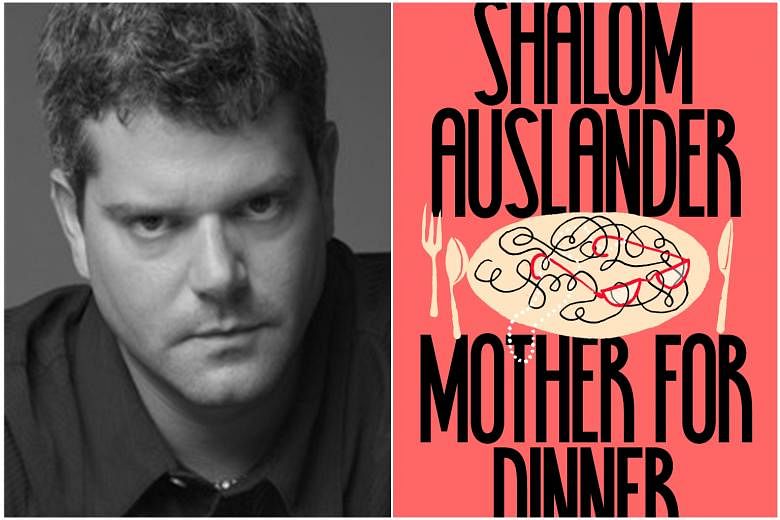Fiction
Mother For Dinner
By Shalom Auslander
Pan Macmillan/ Paperback/272 pages/$29.95/Available here
4 out of 5
There is absolutely nothing politically correct about Shalom Auslander's works of black comedy.
His last novel Hope: A Tragedy (2012) pictured a world where Holocaust victim Anne Frank is not only still alive, but also a foul-mouthed octogenarian struggling to write a follow-up to her best-selling diary.
Mother For Dinner is a similarly absurdist take on identity politics in contemporary New York.
The protagonist, Seventh, is part of an endangered tribe - the Can-Ams (Cannibal-Americans), who not only believe former American president Ronald Reagan and actor Jack Nicholson to be among their ranks, but also see these celebrities as major disappointments for failing to elevate their much-maligned heritage to the mainstream.
This heritage just happens to involve ceremonious feasting on the flesh of the dead.
"No cops," goes the first rule of the Can-Ams. The process of Draining, Purging and Partitioning is disguised as a deer-hunting manual.
The titular mother, Mudd, is a vulgar, racist, larger-than-life matriarch who has been fattening herself up for the ritual by downing a dozen Burger King Whoppers - double bacon, extra cheese, no lettuce - every day for three years.
The plan is for her male children, named First to Twelfth in order of their birth, to feast on her barbecued carcass. In exchange, they will inherit an expensive plot of land in downtown Brooklyn.
"Unclish", their father's brother, is in charge of overseeing the rites.
Never mind that Mudd's caregiver in her final years was her only daughter Zero, deemed "worthless" from birth due to her gender. Or that among the 12 sons, one is dead, one is Jewish and one is vegan.
Seventh, who hightailed from the family home when he reached adult age, may seem to have assimilated into society. He works in a publishing house and is married with a six-year-old daughter. Yet he is still consumed by mummy issues.
Dysfunctional family dynamics provide grist for comedy, as some members try to wriggle out of their grisly legacy.
"If you spit it up, you're not absorbing," Seventh tells Ninth, the vegan. "If you're not absorbing, you're not ingesting. If you're not ingesting, you're not eating."
Mother For Dinner is a fun satire that chews on the meaning of heritage and whether one should sacrifice adopted beliefs to protect inherited culture - windfalls aside.
Auslander makes the case that identities - gender, ethnicity, nationality, religion, sexual orientation, political beliefs - are interchangeable, arbitrary labels that say nothing about one's character, yet can be both restricting and emancipating.
Mother For Dinner is Seventh's journey of discovery. He goes from longing to escape the shackles of his identity to an unlikely defender of his questionable heritage.
Auslander is acerbically witty - "Mothers tend to live much longer (than fathers), which leaves them gamey and dry, their years seasoned with disappointment and heartbreak" - though the novel loses steam when it ventures into preachy territory.
This novel is not for the squeamish or the easily offended. But it will prove delectable for those who can stomach bad taste.
If you like this, read: Identity Crisis by Ben Elton (Bantam, 2019, $17.94, available here). In this blistering mockery of social media, an old-school detective is drawn into the complex online world of keyboard warriors and viral hashtags when he commits a politically incorrect blunder.


